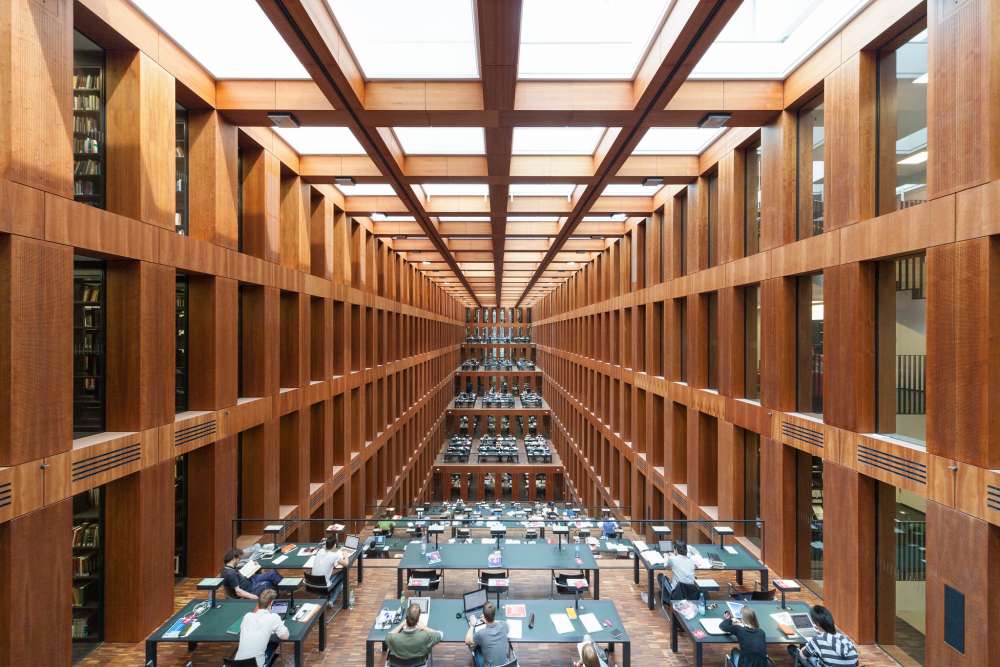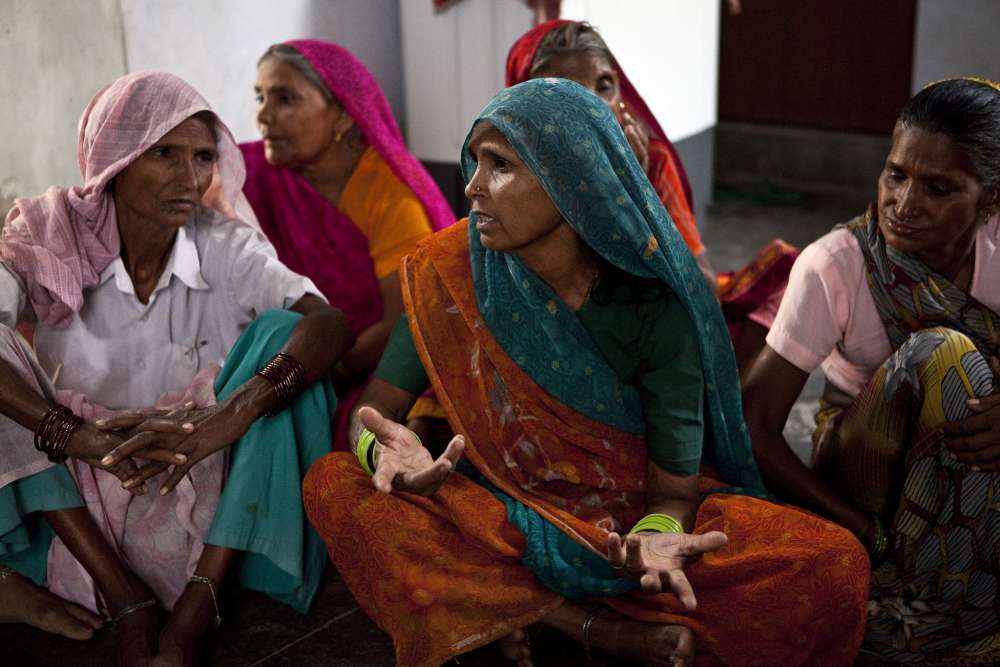Why University Rankings Must Include Academic Freedom

Imagine you are a first-year student starting at one of the world’s top universities. Picture the lecture hall – as it was before the pandemic shifted classes online – well-worn from the generations that came before, or perhaps shiny and new, representing the promise of higher education in a dynamic, forward-looking society.
The professor begins the lecture, but every other sentence is muted. Every other slide on the screen is blank. Every other paragraph in the assigned text is blacked out.
That is effectively what it’s like at some of the most highly ranked institutions in the world, operating in environments where intellectual and creative freedom is severely restricted. Where professors and students risk sacking, expulsion or worse for discussing topics that are not in favour or for asking certain questions.
You wouldn’t know it from looking at the latest world university rankings. Because neither the QS rankings, Times Higher Education, nor the Academic Ranking of World Universities (aka Shanghai) – the three most viewed rankings – nor any other major ranking, acknowledges the central role of academic freedom in top quality teaching and research.
Using various methodologies, they narrowly define academic excellence and reputation as a function of ratios and outputs, like publications, citations and prestigious awards and grants won.
As a result, institutions in repressive environments have begun to populate the top ranks of the reputation ladder.
This misleads and puts at risk prospective students, faculty and partners. It makes it possible for repressive state and higher education authorities to restrict academic freedom without incurring a reputational loss.
Growing Restrictions
Why do we care? In part because threats to academic freedom in one country have a way of spreading abroad. Extraterritorial restrictions on academic freedom are on the rise. Overseas faculty and students carry with them into the classroom and laboratory fears of retaliation – against themselves or family left behind – chilling intellectual exchange and knowledge production.
Even more, we care because academic freedom is a guarantor of quality. Academic freedom – the freedom of teaching faculty and researchers to set the research agenda based on evidence, truth and reason and to communicate findings to colleagues, students and the public – empowers the academic community to serve the public good.
In the absence of academic freedom, teaching curricula and research agendas are determined by narrow interests (usually political, but sometimes commercial or communal).
Self-censorship – a cancer on intellectual creativity and discovery – metastasises, spreading from the most politically sensitive topics and disciplines like sociology, political science, human rights and gender studies throughout the academic system.
Brain drain may follow, out from countries and-or within countries, from research and teaching in the public sphere to other pursuits.
Are Ranking Companies Complicit?
By not including academic freedom, international ranking companies mask these harms. They lend credence to the false premise that academic freedom is an unnecessary luxury.
By trumpeting numerical lists of universities purportedly showing greatness without accounting for vastly different conditions of intellectual and personal freedom, ranking companies contribute to a distortion and risk complicity in commercial deception and political repression.
This is not to say that the major ranking companies are intentionally complicit. Measuring and ranking universities is difficult. Universities are multi-layered and operate in widely different contexts, sometimes even within a single country, let alone around the world. There are important scholarly debates about the soundness of various approaches and methodologies.
Academic freedom itself is simple in concept, but complex in practice, requiring assessment not only of legal and policy protections, but of implementation and limitations in actual practice.
Likewise proving the link between academic freedom and quality is difficult (but not impossible). It is obscured by the fact that great research can be done in places with limited academic freedom; by the fact that more restrictive places have access to the training and intellectual advances in more free places that broadly respect academic freedom.
The First Academic Freedom Index
Given the challenges, ranking companies might have been forgiven for not including academic freedom in their systems.
But not anymore. In 2020 a collaborative effort between researchers at Friedrich-Alexander-Universität Erlangen-Nürnberg, the V‑Dem Institute, the Global Public Policy Institute and Scholars at Risk produced the first global Academic Freedom Index (AFi). The AFi is a global time series dataset on several dimensions of academic freedom at the national level.
The updated 2020 AFi scores were released on 11 March. Based on expert assessments by more than 2,000 scholars around the world, producing over 140,000 data points on 175 countries and territories, the index and its constitutive indicators provide a unique reference point for scholars, university administrators, governments, funders and especially ranking companies.
How Ranking Companies Could Use AFi Data
Ranking companies can now use the AFi data to mitigate the risk of distortion within ranking results and expose underlying restrictions on academic freedom. Since ranking companies and methodologies differ, there are a number of possible paths forward.
The most obvious approach would be to correct the distortion in university rankings by applying a multiplier or discount based on AFi data. This method would be easiest to apply to the small number of country-level rankings, but could still be applied to those which rank individual institutions.
Using the QS ranking as an example, universities currently receive a total score between 0 and 100. One can correct a university’s position in the ranking by attributing a weight (for instance, 20:80) to the AFi compared to the combined weight of the conventional indicators that currently determine the score.
This would penalise universities in the same low-freedom country in an equivalent way, though proportionately to their current score.
In the most recent QS global ranking, for example, Peking University and the University of Tokyo rank 23 and 24 respectively, with overall scores of 83.5 and 83.2. The corrected score for Tokyo would be 78.4, while Peking would be downgraded to 68.2. These corrected scores better reflect the respective universities’ excellence, including academic freedom.
An alternative approach would be to factor AFi scores into the calculation of the initial score itself, rather than as a discount, alongside the other indicators. Academic freedom could be considered a background context factor, like resources, or a measure of excellence. But this could create its own distortion, especially among otherwise low-ranking universities whose score could benefit even from a low AFi score.
Aside from adjusting calculations, ranking companies should at least use AFi data to provide context. They could prominently feature AFi data on their websites and in their reporting, alongside existing ranking results.
Charts showing the constituent elements of the AFi score coupled with sidebars could reveal background restrictions in a country or territory, providing valuable information for risk assessments by students, faculty and institutions considering cross-border activities with a particular institution.
This could also provide a roadmap for institutions and higher education systems looking to improve academic freedom conditions (and, as a result, their AFi scores).
If not in their calculations or as context, ranking companies could include academic freedom as a precondition to ranking an institution. Many ranking systems depend on voluntary, self-reported data from higher education institutions and leadership.
Along with these submissions, ranking companies could require universities to certify their commitment to academic freedom and to disclose any relevant incidents, policies or practices, positive or negative, as a precondition to appearing in ranking tables.
Making these commitments and disclosures public, such as on their websites or in ranking reports, would foster transparency. This would allow stakeholders to compare self-reporting against the AFi and other sources of data, which could support research, advocacy and dialogue aimed at strengthening academic freedom.
Strengthening Academic Freedom
Academic freedom must be resurrected as a key criterion for academic reputation and quality. Prior to 2020, ranking companies might have been forgiven for not including academic freedom in their systems. No longer.
Ranking companies are in a unique position to use the AFi data to improve their university rankings. By doing so, they can create strong incentives for university rectors and governments, who value and act on these prestigious rankings, to take steps to strengthen academic freedom.
Whether ranking companies will be willing to do so remains to be seen, but this much is clear: ranking companies not wishing to be seen as complicit in academic freedom violations must do their part, include academic freedom in their rankings or make their reasons for failing to do so explicit.
This commentary was published on March 11, 2021 by University World News.







